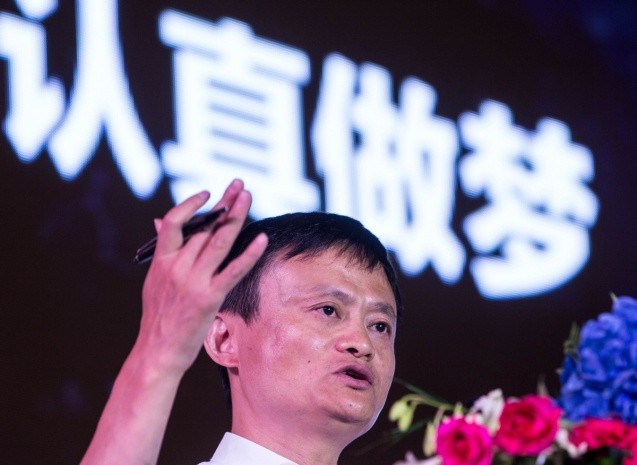Popular Reads
Top Results
Can't find what you're looking for?
View all search resultsPopular Reads
Top Results
Can't find what you're looking for?
View all search resultsIncentives sought to propel e-commerce
Change text size
Gift Premium Articles
to Anyone
D
uring his February visit to California’s Silicon Valley, home to the world’s largest high-tech corporations, President Joko “Jokowi” Widodo proudly shared his vision to make Indonesia’s digital economy the biggest in Southeast Asia, amassing a total value of US$130 billion by 2020.
Since then, he has repeatedly called on stakeholders to support the development of a digital economy, particularly e-commerce, noting that Indonesia has abundant potential to compete with other countries in the sector.
The President, who made his living as a furniture exporter prior to entering politics, however, chose on Tuesday to get real about his dream, as he expressed concerns over the slow progress of the country’s ecommerce industry.
In his remarks before a closeddoor Cabinet meeting, President Jokowi shared his disappointment about the country’s underdeveloped e-commerce while emphasizing the potential role of the industry to support the development of millions of the country’s 56 million small and medium-sized enterprises.
Taking the giant Chinese online marketplace Alibaba as an example, Jokowi also highlighted the need for Indonesia to have its own logistics and retail platform in order to support local e-commerce operations.
“Just look at Alibaba. They have conquered the world because they have a logistics platform that they have completely mastered. Like it or not, Indonesia must have one of its own,” he said.
Indonesia’s e-commerce market was estimated to be worth Rp 18 trillion (US$1.4 billion) in 2015, with 37 million consumers from a total population of 255 million, according to World Economic Outlook data compiled by the Internet Service Providers Association. The association also predicted that the e-commerce market would reach Rp 25 trillion by 2016, with 49 million consumers.
Communications and Information Minister Rudiantara said the government was preparing a presidential regulation (Perpres) encompassing e-commerce, which would be the subject of its upcoming 14th economic policy package. The Perpres, he said, would focus on seven issues — human resources and education, funding, taxation, consumer protection, cybersecurity, logistics and communications infrastructure — with 31 initiatives.
Rudiantara, however, declined to confirm when the new policy package and Perpres would be issued.
Since taking office in 2014, President Joko “Jokowi” Widodo has issued 13 stimulus packages aimed at easing hurdles that have long dampened the country’s economy.
By going mainly digital, Indonesia would be able to unleash its next level of economic growth to the tune of $150 billion in terms of impact by the year 2025 if it is able to address the most pressing and basic issues adequately, said management consulting firm McKinsey & Company in a report released on Tuesday.
The report suggested that while Indonesia is admirable in terms of the amount of its internet and smartphone users, it still does not adequately embrace modern technology’s benefits. Internet penetration in Indonesia has only reached 39 percent of the population despite having a smartphone penetration rate of 43 percent.
The report partly places the fault of the low penetration on Indonesia’s relatively weak information and communications technology infrastructure. Indonesia’s internet bandwidth rate, for instance, is still far below its peers, with an average of 6.2 kbps per user compared to Malaysia with 27.2 kbps and the Philippines with 27.7 kbps.
“Digitalization is a reality that affects all industries and even traditional businesses have to think of the right strategy to adopt. In Indonesia there is a massive infrastructure opportunity and that’s where economic growth can really begin,” McKinsey’s Jakarta partner Khoon Tee Tan said.
From an online business perspective, the Lippo Group’s John Riady, whose conglomerate runs the online e-commerce platform MatahariMall, said that government regulations must also support the trend of digitalization rather than go against it.
Alfacart.com CEO Catherine Hindra Sutjahyo, meanwhile, said that online access is the key for internetdriven growth, suggesting that the development of ICT infrastructure can help speed up development.
“Technology is advancing at a very fast rate globally. We should first watch and then let it grow before regulating it later,” she said.
 Digital technologies(McKinsey Global Institute Study/File)
Digital technologies(McKinsey Global Institute Study/File)










